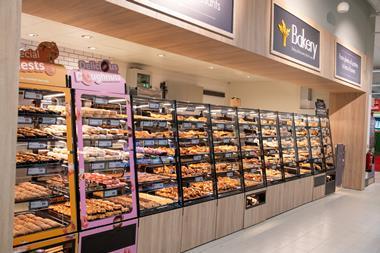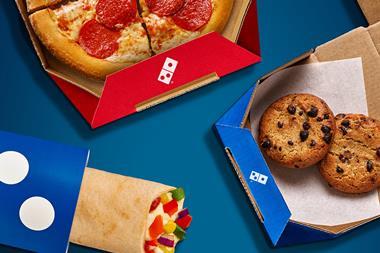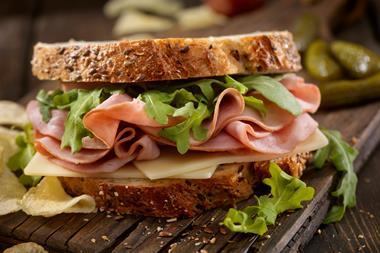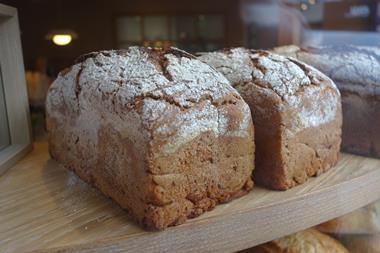Salt is yet again top of the agenda at the Food Standards Agency (FSA), with bakers seemingly obliged to stand in a continual firing line. Its new campaign encourages shoppers to look at the labels of foods, such as bread, sandwiches and pizza, and buy those with the lowest salt content.
It has been seen as a slap in the face by many bakers, who have been working "voluntarily" to reduce the salt in their products, only to have a metaphorical pile of salt, heaped on their flames of glory for achieving the FSA’s own targets. The Federation of Bakers (FoB) told the FSA wouldn’t provide a statement of support for the consumer campaign, however FoB director Gordon Polson told British Baker: "We’re not going to try and counter their multi-million pound campaign."
Despite the FSA’s rejoinder that it is not suggesting consu-mers eat less bread, displaying posters of loaves with salt pouring out of them is hardly good publicity for bakers. A spokesperson for the FSA admitted that some bakers may come out of it worse than others. "If bakers aren’t actively trying to take salt out, then those are the bakers that may be affected as a result of this campaign," she said.
When it comes to warning consumers about the amount of salt in bread, international law firm Eversheds says the FSA has to rely on advertising, as UK labelling rules are governed by European law, meaning salt levels do not have to be indicated on food packaging. "EU law on free trade also prevents the UK from legislating for maximum salt levels in bread," said Owen Warnock, partner and food law expert at Eversheds. "An update of EU law on food law is currently being undertaken, which will require declaration on the front of the pack of the percentage content of many nutrients. However, there is no proposal to require salt content to be indicated."
The FSA will this week be updating the European Com-mission on the UK’s position on salt at a conference in Brussels, organised by the EU Platform for Diet and Physical Activity entitled ’Salt in Bread: Technical, Taste and other Parameters for Healthy Eating’.
Polson, who will be speaking at the conference, explained the main purpose of the event is for the European Commission to understand the different developments on salt in bread within Europe. "There is no suggestion that there is going to be any new legislation coming out of Europe," he said. However the conference will focus on national salt initiatives, salt and health, technologies of salt reduction in bread, suggesting it’s becoming a hot topic in Europe.
Annoyance
Comments from the FSA that "supermarket own-label versions of some foods, including bread, are often lower in salt than the branded versions", has been met with annoyance by the plant and craft industry alike. Polson is disappointed that all the work that has gone on to reduce salt has not been recognised. "If a certain number of slices of bread makes up a third of your daily salt allowance, there is nothing wrong with that. There has not been enough emphasis on the good qualities of bread."
However, the FSA insisted that the comments regarding branded bread having more salt, were based on fact. "We looked at the salt levels in around 70 commonly available branded and supermarket own-label white, brown and wholemeal sliced breads," explained a spokesperson for the FSA. "For example, of the top 15 white loaves with higher levels (range 0.7g to 0.41g sodium per 100g bread), 12 were branded and three were supermarket own-label. Of the bottom 19 white loaves containing lower levels of salt (range 0.4g to 0.3g sodium per 100g bread), one was branded and 18 were supermarket own-label."
Jan Thomson, co-owner of Thomsons Bakery in Newcastle Upon Tyne, is angry that despite meeting the salt levels the FSA has asked for, small craft bakers are not being acknowledged for all the work they have done. "That has got no publicity at all," she said. "Bread is a staple in people’s diet, and if the FSA flag it up as something that’s bad for consumers, then what next?"



































No comments yet